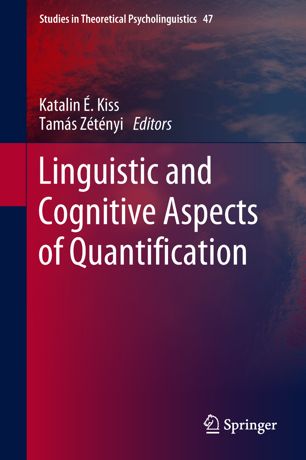

Most ebook files are in PDF format, so you can easily read them using various software such as Foxit Reader or directly on the Google Chrome browser.
Some ebook files are released by publishers in other formats such as .awz, .mobi, .epub, .fb2, etc. You may need to install specific software to read these formats on mobile/PC, such as Calibre.
Please read the tutorial at this link: https://ebookbell.com/faq
We offer FREE conversion to the popular formats you request; however, this may take some time. Therefore, right after payment, please email us, and we will try to provide the service as quickly as possible.
For some exceptional file formats or broken links (if any), please refrain from opening any disputes. Instead, email us first, and we will try to assist within a maximum of 6 hours.
EbookBell Team

4.8
84 reviewsThis volume presents the results of psycholinguistic research into various aspects of the grammar of quantification. The investigations involve children and adults, speakers of different languages, using a variety of experimental paradigms. A shared aspect of the studies is that they present their experimental results as evidence evaluating linguistic theories of quantification. Topics discussed include the interpretation of universal, comparative, and superlative quantifiers, quantifier spreading, scope interaction between pairs of quantifiers and between quantifiers and wh-phrases, distributivity and cumulativity, the interaction of quantifier interpretation with information structure, the disambiguating role of prosody, the functional overlap between universal quantification and perfectivity, and much more. The focus on experimental evidence makes this book essential reading for linguists (syntacticians, semanticists and pragmatists), psycholinguists and psychologists interested in quantification.